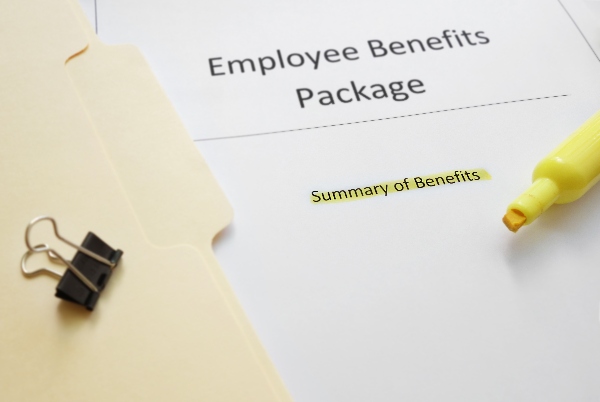Comments
- No comments found

In order to ensure seamless operations within a company, it is imperative to have skilled and motivated workers.
That usually starts with employee benefits, which are perks that go beyond salaries, like insurance. Flexible benefits often help keep employees engaged, dedicated, and willing to stay with a company.
Surprisingly, 80% of employers report that many employees don't even read their benefit materials. As a result, many people don't understand their benefits.
Being a new hire, you must grasp the benefits your company provides, including what they do and don't cover. That knowledge also lets you use those benefits to their fullest potential. This guide will explain the usual company-provided benefits so you can maximize their use.
Your employee benefits package is a valuable set of programs and resources. Employers offer them to support their team's financial well-being, health, and overall happiness. Here are some of the most common benefits you might receive:

This benefit covers medical expenses, which could include doctor's visits, prescriptions, and hospital stays. Employers often offer three main types:
Medical
Dental
Vision
Having health insurance allows you to receive certain medical services without paying out of pocket. If you're a new hire and still building up your savings, this benefit can be quite valuable.
Health insurance tends to be complex and may only cover some medical procedures, depending on the vendor. But you can get by with aid from employee benefits attorneys. These professionals will also help you in case of disputes so you can receive the benefits you're entitled to.
These plans allow you to save considerable money for your retirement. Examples include a 401 plan, where your contributions are often matched by your employer, helping you build a nest egg for retirement. In 2022, the average 401(k) account balance for 55- to 60-year-olds was around USD$199,743.
Every employee needs ample time to rest and, sometimes, a few weekdays off to focus on other priorities outside of work. That's where a PTO can be helpful. It typically includes vacation time, sick leave, and personal days. Even when you're taking time off work, you still get paid.
If you're lucky, your company might provide you with additional benefits to enhance your work-life balance and overall well-being. These can include gym memberships, discounts on various services, and wellness programs, among others.

Understanding your benefits empowers you to make better decisions about your health, finances, and time off. Here's why taking charge of them is important:
Your benefits are there to support you financially, especially during unexpected events. Health insurance, for instance, can shield you from excessive medical bills if you get sick or injured. Meanwhile, retirement plans help you live substantially in your golden years.
Take the time to understand your options. Compare the different health plans and look at the deductibles, co-pays, and provider networks to find the best fit for your needs and budget. Don't just gloss over the other benefits. Things like disability insurance or an FSA could prove invaluable down the road.
Your pay is only part of the story when it comes to compensation. Your benefits package is like a hidden bonus. Things like health coverage, generous PTO, and retirement contributions from your company can add up to thousands of dollars in additional value each year.

Your employer may cover a chunk of your benefit costs, but you'll usually chip in, too. For health insurance, you'll pay a premium while your employer pays the rest. You'll also have out-of-pocket costs when you use your insurance, like deductibles and co-pays.
Employer costs for employee benefits vary by benefit type and employee category. Health insurance is the biggest piece of the benefits pie. For the average civilian worker, it amounts to about USD $3.42 per hour worked and USD$6.55 for state and local government workers.
You'll likely see deductions for things like health insurance, retirement contributions, and other benefits you've enrolled in on your pay stub. These deductions are taken out pre-tax, which means they lower your taxable income. So, while it may seem like a hit to your take-home pay, it's a savvy financial move.

Not always. Some benefits, like retirement plans, might have eligibility requirements based on factors like your employment status and how long you've been with the company.
For health insurance, you'll get an insurance card to present at doctor's visits and pharmacies. For other benefits, like a gym membership stipend, you may need to submit receipts for reimbursement.
Major life events—like marriage, divorce, and having a child—are a great time to review and update your beneficiary designations for things like life insurance and retirement accounts. It's a simple form to fill out, but it's crucial for ensuring your benefits go to the right people.
Don't hesitate to reach out to your HR department. They have access to helpful resources and can answer your questions. They're there to help you navigate all things related to benefits.
Understanding employee benefits on top of your work tasks can overwhelm you as a new hire. But with the info above and guidance from your HR representative, you can overcome that hurdle smoothly.
Remember, your benefits are a valuable part of your compensation. By taking the time to understand and utilize them, you can support your financial security and well-being.
Leave your comments
Post comment as a guest